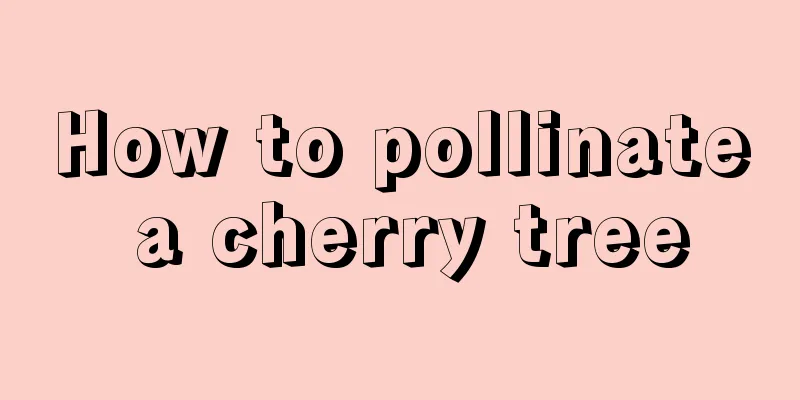How to propagate Taiping flower

1. PlantingSowing should be done in a sunny and well-drained place, usually in spring. Appropriate amount of fertilizer should be applied before germination to promote future flowering. If you don't want to keep them for seeds, you should cut them off in time after the flowers wither. At the same time, dead, diseased and dense branches should be cut off, while new growth branches should be retained. The fruits are collected in October, dried in the sun, and cracked. The seeds are selected and stored and can be sown in March of next year. The plants will bloom after 3-4 years of cultivation. 2. Layering and divisionSelect healthy branches, use a knife to cut a small hole in one of them to facilitate rooting, then bury them in the soil, water them appropriately, and wait until new roots emerge from the wound, then cut the plant into two plants. This method of pressing plant branches into the soil, waiting for them to take root and then separating them from the original plant is called layering. Although this method is simple and has a high survival rate, the number of reproductions each time is small. This is a method of asexual reproduction in which the branches retain their original appearance and are only separated from the mother plant after they survive. When using this method, you can choose to use the normal method, the horizontal method or the wave method according to the specific situation of the plant. Generally, layering is only carried out in February and March. The temperature in spring is suitable, making it easier for roots to grow and for plants to survive. 3. CuttingsWhen using this method, the branches must be of good variety and growing healthily and vigorously, without being infected or having been infected with diseases or pests. Old or diseased branches do not meet the conditions for use and will be removed. On the same plant, the part to be used should be the branches in the upper middle part, which receive sunlight for a long time. In addition, the branches should have sufficient buds and be lush and leafy. If you use hard branches, you need to choose the lower middle part of the branch because this part contains more nutrients. Soft materials are easier to root by cuttings from late May to early June. |
<<: How to propagate the flower
>>: How to distinguish between Gaillardia and perennial Gaillardia?
Recommend
How many hours a day should succulents be exposed to the sun?
1. How many hours of sun exposure a day General s...
How to propagate Barbadensis by cuttings
1. Cutting time If you want to propagate Erysimum...
How to grow dragon fruit in pots, how to quickly root it
1. Breeding methods 1. Soil: Dragon fruit has a g...
Can spider plants survive in water? Will they freeze to death if placed outdoors in winter?
1. Can it survive in water? Chlorophytum can be k...
The best time to prune ginkgo, when to prune potted ginkgo
1. Pruning time Ginkgo is usually pruned in summe...
How to deal with garlic seeds before sowing (how to deal with garlic seeds before sowing)
Garlic is a vegetable of the genus Allium in the ...
How to grow white sandalwood cactus and make it bloom
Winter care of white sandalwood cactus It is very...
Give the flowers some onion water, and all the mosquitoes will die in 2 days, and the flowers will bloom so much that they will burst the pots!
Spray some onion water on the flowers and all the...
Is cyclamen suitable for large or small pots?
Should I use a large or small pot for cyclamen? W...
What to do if bougainvillea does not sprout new buds
1. Increase sunlight It is a plant that loves sun...
How to propagate Magnolia by cuttings
1. Cutting time The best time for magnolia cuttin...
When is the best time to plant pears?
The pear tree is a perennial deciduous fruit tree...
What vegetables are suitable for growing in balcony flower pots
What vegetables are suitable for growing in balco...
Is baby's breath suitable for indoor cultivation?
1. Is it suitable for indoor breeding? 1. It does...
A 5㎡ balcony can also be turned into a small vegetable garden, where you can have whatever vegetables you want!
Which vegetables should I choose to grow? Huahua ...









